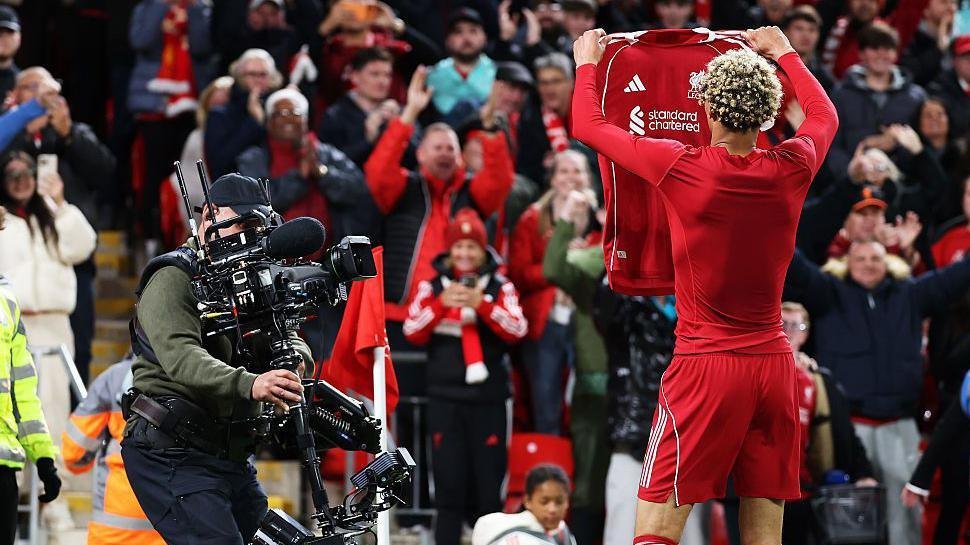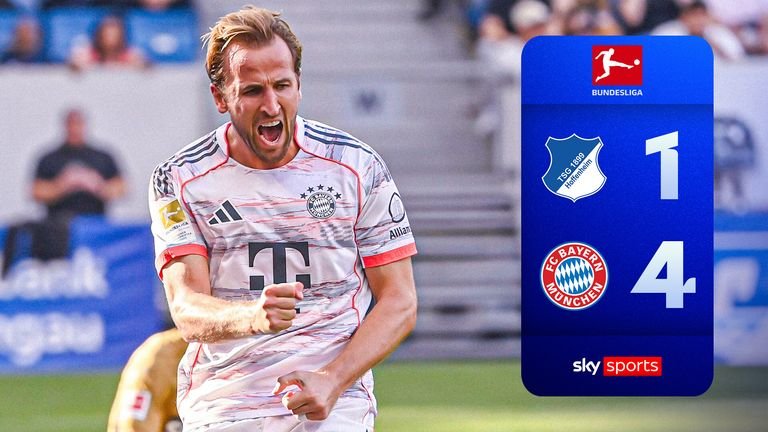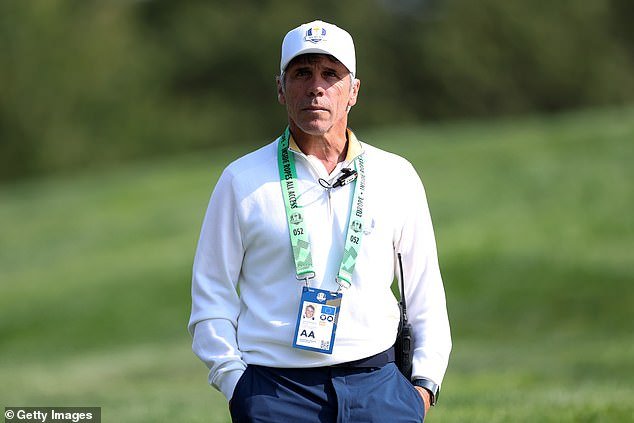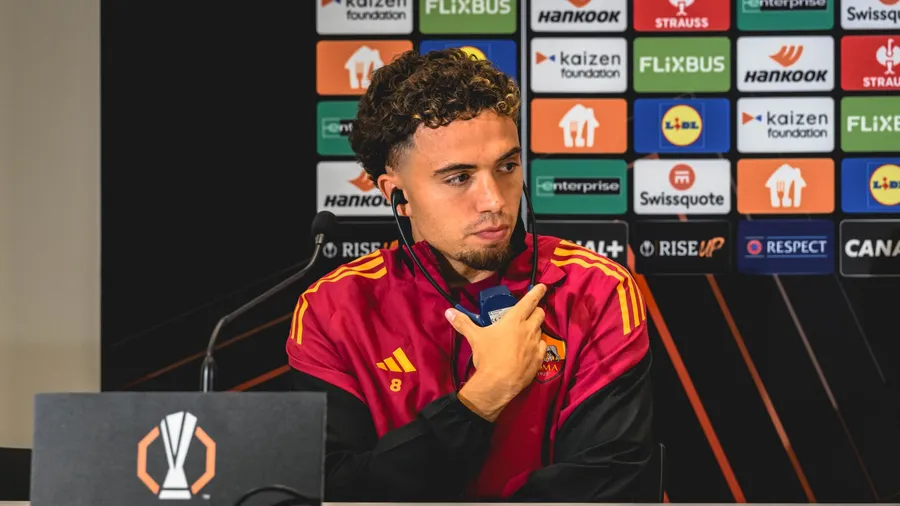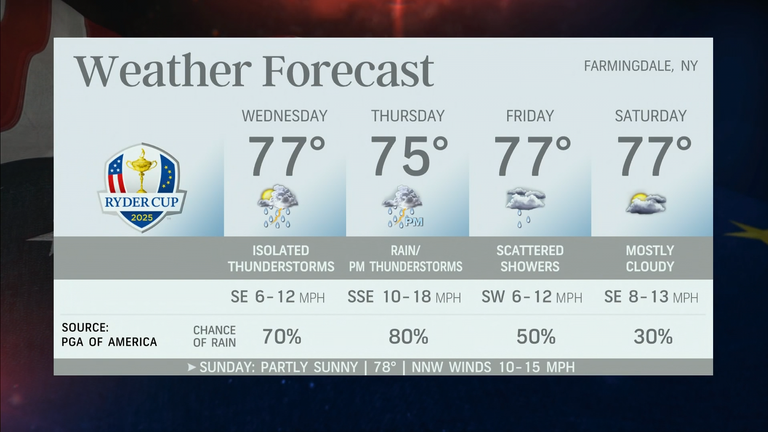When executives from all 20 clubs gather for the Premier League’s shareholder meeting in London on Tuesday, proceedings will take on a distinctly different feel.
Daniel Levy, one of the top flight’s most influential figures over 24 years as Tottenham Hotspur chairman, will be missing after he was removed from his position this month.
On Friday, The Athletic reported Tim Lewis is leaving his role as executive vice-chair of Arsenal in a significant shake-up of the club’s board. The 62-year-old has advised Arsenal’s ownership group Kroenke Sports & Entertainment (KSE) since 2007, became a director of the club in September 2020 and was promoted in March 2023.
Changes have taken place elsewhere, too, including new chief executives (CEOs) at Newcastle United and Aston Villa over the summer.
These get-togethers are where the Premier League’s most pressing issues are discussed, with alliances forming and divisions appearing.
The list of attendees has become increasingly fluid. As a general rule, the club CEO attends but their “plus one” varies from club to club, as well as from meeting to meeting. It could be the chair, vice-chair, chief financial officer, head of legal or club secretary, depending on the topics under discussion. Tuesday’s meeting is expected to focus on new financial regulations.
So, who will be representing each club at this first meeting since the 2025-26 season began, what relationships do they have and what are they particularly interested in?
Arsenal
Last week’s upheaval means a change in how Arsenal will be represented at Premier League meetings going forward.
Certainly, Lewis’ absence will be felt in discussions between the 20 clubs. Under instruction from Arsenal’s owners, Lewis was an articulate and forthright figure in league-wide discussions. He was respected, if not necessarily universally popular. He was outspoken on issues surrounding state-sponsored ownership and associated party transactions (APT). His voice carried weight among attendees and helped re-establish Arsenal as a political force at the Premier League table.
With Lewis gone, Richard Garlick has been made Arsenal’s new CEO, and is likely to represent Arsenal at future Premier League meetings.
At board level, the involvement of Josh Kroenke, son of owner Stan Kroenke, continues to increase. Other board appointments confirmed by Arsenal include the addition of film producer Ben Winston, as well as Kelly Blaha, Dave Steiner and Otto Maly from Kroenke Sports & Entertainment.
James McNicholas
Aston Villa
Increasingly critical of the Premier League, Villa have objected to guidelines on profit and sustainability rules (PSR). Led by co-owner, Villa have expressed their doubts over the current £105million ($142m) threshold — the amount of losses clubs can incur over a three-year period — instead proposing to increase the figure to £135m.
Sawiris voted against new APT rules — these govern any deal between a club and company that shares a common owner or investor — in November 2024, with Villa among only four clubs to do so, alongside Nottingham Forest, Newcastle United and Nottingham Forest. He was previously joined by former president of business operations Chris Heck at the meetings. With Heck having departed in the summer, replacement Francesco Calvo is likely to step in.

Aston Villa owners Nassef Sawiris and Wesley Edens before the first leg against Paris Saint-Germain in April (Neville Williams/Aston Villa FC via Getty Images)
Jacob Tanswell
Bournemouth
Former owner Jeff Mostyn used to be Bournemouth’s most regular attendee but he stood down as chairman in 2023. He used to go along with Neill Blake, the ex-CEO, but Blake has got a new role in the wider Black Knight group now.
Bournemouth have co-CEOs now, with Jim Frevola leading on business matters and Tiago Pinto being the football guy.
Given this meeting is expected to focus on the league’s proposed new financial regulations, it would make more sense for Frevola to attend this time but he may well be accompanied by someone from the finance team.
Matt Slater
Brentford
CEO Jon Varney regularly attends these meetings and is sometimes accompanied by the club’s chairman, Cliff Crown. Varney is a lifelong Brentford fan who became their CEO in 2019. He previously worked for the Rugby Football Union (RFU), Premiership Rugby and sports marketing agency Pitch International. In the 1990s, he managed Coca-Cola’s football sponsorships, including with the League Cup.
During his time at Premiership Rugby, Varney was responsible for merchandising, broadcast revenue and brokering sponsorship deals. His experience in the business and commercial worlds has been valuable in these meetings as they discuss what is best for growing the league’s brand.
Jay Harris
Brighton & Hove Albion
As chief executive, Paul Barber almost always attends the meetings, often joined by owner-chairman Tony Bloom.
They do not speak that much, taking the view that the less you talk, the more your opinion carries weight when you choose to intervene. It helps that their views are widely respected.

Tony Bloom, left, and Paul Barber are respected figures at Premier League meetings (Chris Brunskill/Fantasista/Getty Images)
There was a good example of this in 2021, when they were prominent in opposing plans by the big clubs for a European Super League.
The Premier League is a broad church, so they do not seek special relationships or alliances with particular clubs.
Andy Naylor
Burnley
Burnley chairman Alan Pace or CEO James Holroyd, who officially joined in April 2025, attend the meetings.
The club have been in and out of the Premier League over recent seasons, with a relegation twice followed by a promotion, so they have not been involved in all of the key shareholder votes that have taken place. In 2023, though, Burnley were one of the teams who voted against banning loan players from partner teams. ALK Capital, Pace’s investment company that has a controlling stake in Burnley, had ambitions to move into multi-club ownership, and while it had not done so when the vote was conducted, it confirmed the purchase of Spanish club Espanyol this year.
While Burnley are keen to be supportive and collaborative with other member clubs, they are involved in a dispute with Everton, suing them for damages relating to Everton’s PSR rulebreak during the 2021-22 campaign when Burnley were relegated. The club did not want the dispute to get to this stage of battling it out in the courts.
Andy Jones
Chelsea
Chief legal and corporate affairs officer James Bonington goes along, but Chelsea are also one of the few clubs represented by a member of the ownership at every meeting.
There is no concerted effort to form an allegiance or alliance with anyone in particular. Chelsea have voted along with some of the so-called ‘bigger clubs’ on one issue and sided with those lower down the division on others. They regard themselves more as being in a position to provide a swing vote.
An indication of this was during the long process to come to an agreement over APT regulations. Their first vote was in favour, then against when the proposal was changed and then in favour for the final changes, which went through in November.
While there was a consensus among the majority of the shareholders not to even go to a vote in June, Chelsea were one of the clubs not looking to amend rules regarding the sale of fixed assets to companies related to a club’s ownership. Chelsea were one of the reasons it came under focus from other clubs to begin with, due to the sale of two club hotels and the women’s team. The vast sums raised helped Chelsea comply with PSR.

Chelsea signed Alejandro Garnacho this summer but their spending has come under focus (Maja Hitij/Getty Images)
Simon Johnson
Crystal Palace
Steve Parish is typically their representative at Premier League meetings. The club’s chairman believes in standing up for Palace’s best interests and other supposedly smaller clubs.
He is effectively the speaker for the ‘other 14’ Premier League clubs outside the traditional ‘Big Six’ (Arsenal, Chelsea, Liverpool, Manchester City, Manchester United and Spurs) and tends to advocate for positions that favour the majority and potentially a more equitable playing field.
Palace voted against related party transactions in November 2023, despite one of their owners, John Textor, being eager to leverage it for his Eagle Football Group multi-club project. They abstained from an APT vote in February 2024.
Parish has built strong relationships with many of the division’s top executives, and his relationship with outgoing Arsenal executive vice-chair Lewis was helpful when selling Eberechi Eze this summer. He continues to represent those whose voices may not carry so much weight.
Matt Woosnam
Everton
With The Friedkin Group (TFG) less than a year into its ownership and CEO Angus Kinnear having only officially joined this summer, this is a new era for Everton.
The relationship between Everton’s previous hierarchy and the Premier League was largely frosty, with the club frustrated by what they felt was a heavy-handed response to their two PSR breaches in 2022 and 2023.
What comes next is likely to be altogether more conciliatory, with TFG keen to improve relations. That the league dropped an outstanding PSR complaint against Everton in January, shortly after TFG’s takeover, was seen as a sign of thawing relations.
After last season’s APT vote, Everton moved quickly to convert around £450m of shareholder loans from former owner Farhad Moshiri into equity, thus avoiding another potential PSR headache.
Kinnear will represent Everton in meetings and knows many in the room from his time at Leeds United.
Patrick Boyland
Fulham
They may not be one of the biggest players at these meetings but Fulham CEO Alistair Mackintosh has been in his role since 2008 and, as such, is one of the more experienced voices in the room.
Fulham, as with Bournemouth, are a good example of the Premier League’s new ‘middle class’. They have not historically been top-tier clubs but, now that they have reached the big time, are understandably keen to remain there.
They tend to support the league’s efforts to restrain the spending power of the biggest and richest clubs, while backing initiatives to grow central revenues via overseas media rights, commercial deals and overseas tours.
Like most top-flight clubs, they have been hawkish on the government’s decision to impose independent regulation on the game and have not shown much interest in sharing more of the Premier League’s media income with the English Football League.
Again, like Bournemouth, they are American-owned and the Khan family operate sports teams in the U.S., which means they have experience of leagues that share everything, where owners are not expected to subsidise their teams every year. That said, neither club have a reputation for rocking the boat within the Premier League.
They are often pointed to as examples of how smaller teams can establish themselves at this level thanks to generous investment, good recruitment and constant improvement of infrastructure.
Matt Slater
Leeds United
The club will be represented by managing director Robbie Evans and executive vice-chair Peter McCormick on Tuesday. As they have only recently returned to the top flight, the club have not had to stick their head above the parapet on some of the division’s key issues.
Evans only arrived in the UK in November 2023 and did not take on the club’s day-to-day top job until April this year. McCormick, by stark contrast, knows these meetings like the back of his hand.
A deeply experienced sports lawyer, he worked with the Premier League for 11 years before taking on his new Leeds role in March. Among myriad roles at the top of the organisation, McCormick was interim chair in 2021-22 and 2022-23.
He was on the Elland Road board in the 1990s, but in his roles with the league and the Football Association, McCormick has had to remain a neutral and democratic figure. He will know the majority of the faces in the meeting very well and have relationships with those who have been attending the longest.
Beren Cross
Liverpool
Liverpool are represented at Premier League meetings by both chairman Tom Werner, the second-highest individual shareholder in Fenway Sports Group (FSG), and the club’s CEO, Billy Hogan.
They have been long-term advocates of financial sustainability and the need for controls, including when it comes to PSR and APT.
Liverpool’s owners have been committed to a self-sustaining business model since they completed their takeover at Anfield nearly 15 years ago. They do not take money out of the club or inject their own cash and believe all top-flight clubs should live within their means. With Premier League clubs generating more revenue every year, their stance is that there is no reason for any club to be losing money.
They have also been supportive of all measures that try to ensure sponsorship deals represent fair market value and are not artificially inflated.
Asked last year about Manchester City’s legal battle with the Premier League over APT rules, which was recently settled, Hogan told The Athletic: “We voted for them. We are supportive of them.”
Liverpool have made a stand against what they view as the use of financial loopholes that undermine both the system and the broader sustainability of the league, like the sale of women’s teams back to clubs.
There is a natural affinity with Arsenal when it comes to the philosophy of the Anfield hierarchy, but there are no real allegiances and they enjoy cordial relations with all their rivals when it comes to the meetings.
James Pearce
Manchester City
Manchester City have been known to send CEO Ferran Soriano plus another but that is on the occasions they are happy to portray a sweeter disposition. Given the tumultuous relationship between them and the Premier League, it is not always the same person in the room.

Ferran Soriano (left) alongside manager Pep Guardiola and chairman Khaldoon Al Mubarak after the Champions League final in 2023 (Michael Steele/Getty Images)
Former chief football operations Omar Berrada used to attend but since his move to Manchester United last January, the club have sometimes sent their legal counsel, Simon Cliff, who wrote a strongly worded letter to member clubs last October, accusing the Premier League of inaccuracies in its summary of a vote on APT. The Premier League rejected the idea that its response to the vote was misleading.
City twice launched arbitration against the league’s APT rules, which saw both parties finally reach a settlement last month before the case reached a hearing.
The compromise has avoided the nuclear outcome of the rulebook being ripped up entirely but the 100-plus charges against City still hang over the competition, and every one of these meetings. The reality is that while it may dominate private conversations, the subject is rarely brought up at the big table.
City have found a natural ally in Newcastle when it comes to APT, given the ties between their owners and Gulf states, while Aston Villa and Nottingham Forest have also sided with them in votes on financial restrictions.
Jordan Campbell
Manchester United
There has been a fair share of churn at the boardroom level since Sir Jim Ratcliffe’s $1.6billion purchase of a minority stake last year, which led to the petrochemical billionaire assuming control of day-to-day operations at Old Trafford.
Since then, United have typically been represented at these meetings by two Ratcliffe appointees. CEO Berrada, who was formerly chief football operations officer at Manchester City, is one.

Omar Berrada, left, with Sir Jim Ratcliffe (Oli Scarff/AFP via Getty Images)
Berrada is usually joined by CFO Roger Bell, a long-time Ratcliffe lieutenant who previously served in the same role at INEOS Sport and came out of retirement upon his appointment in April 2024.
United are advocates of the Premier League’s spending regulations and, during the top flight’s stand-off with City regarding associated party transactions, were one of eight clubs to provide evidence in support of the league’s position.
Yet United last year voted with City against another proposal on salary cap ‘anchoring’, which would have limited clubs’ spending to five times the amount the bottom-placed club receives from the league in media and sponsorship income.
Mark Critchley
Newcastle United
The state of flux at the top of Newcastle means that, while Darren Eales was previously the club’s most prominent voice at Premier League meetings, his replacement as CEO, David Hopkinson, is expected to assume that responsibility.
The Canadian is little more than a fortnight into the role, but APT and PSR continue to dominate the Newcastle agenda. If Newcastle are genuinely going to fulfil the ambition of their majority owner, Saudi Arabia’s Public Investment Fund (PIF), and become “No 1”, they must rapidly expand their revenues so they can compete with the ‘Big Six’ long term.
Newcastle’s income has grown substantially since the 2021 takeover, but APT rules were firmed up by other clubs in response and that has restricted their ability to further enlarge their revenue streams. Manchester City are, in some ways, a natural ally, though Newcastle did not formally join their fellow state-funded club in challenging the Premier League’s APT rules, nor have they gone down the route of selling assets or their women’s team to themselves, as others have done.
Chris Waugh
Nottingham Forest
Returning to European competition after three decades means the two people who normally represent Forest at Premier League meetings — CEO Lina Souloukou and chairman Nicholas Randall KC — will be otherwise engaged.
They are expected to be part of the club contingent heading to Seville for Forest’s Europa League game against Real Betis on Wednesday. It is yet to be confirmed who will be the club’s representative at the meeting, but it is most likely to fall to financial director Tom Bonsor.
Along with Manchester City, Villa and Newcastle, Forest voted against amendments made to the APR rules in November 2024, but were outvoted 16-4.
Paul Taylor
Sunderland
Like Ipswich Town last season, Sunderland are very much the new starters in class. This is their first Premier League campaign since 2016-17 and there is very little that links that era to this one.
Sunderland’s return was formally ratified at the summer AGM in Harrogate and it was the club’s majority shareholder, Kyril Louis-Dreyfus, who attended that two-day event, along with the club’s chief business officer, David Bruce, who was previously chief marketing officer at Major League Soccer.
Neither of those figures — nor any other on Sunderland’s board — has experience of the Premier League, so expect them to initially take a watching brief when political games are played. Sunderland will hope their influence can grow in time.
Philip Buckingham
Tottenham Hotspur
Levy was the longest-serving chairman in the division and he held significant sway in these meetings but will no longer be attending them after leaving Spurs this month. Tottenham announced in a statement that Levy had stepped down after 24 years as executive chairman, but the decision was made by the club’s majority shareholders, the Lewis family.
It means Spurs’ interests will now be represented by their CEO Vinai Venkatesham, who was only appointed to the role in April. Venkatesham has experience in the commercial world and worked on the Olympics and Paralympics when they were held in London in 2012. He has been a non-executive director of the British Olympic Association (BOA) since 2017. Last year, he was named as the independent chair of a new advisory board appointed to oversee the future development of Wembley Stadium.

Vinai Venkatesham had worked with Daniel Levy since April (Simon Stacpoole/Offside via Getty Images)
Venkatesham held six different roles across 14 years with Arsenal, eventually rising to become their CEO. It is probably going to feel a little bit strange when he attends this meeting and sits across the table from those representing the club he worked for over such a long period.
Jay Harris
West Ham United
Karren Brady, West Ham United’s vice-chair, normally attends the meetings. She is vocal during them and has no issues revealing what was said. For example, in 2021, the club was another who opposed plans for a European Super League. The Premier League called for a meeting for the 14 clubs who were not part of the breakaway discussions. Shortly after, Brady revealed some of the talking points.
“I watched four of the (other) six give apologies to their fans and players for being part of the money cartel and wondered where the apology was to their colleagues in the Premier League, as well as all our managers, players and fans,” Brady wrote in her column for The Sun.
“All six clubs pretended to be working for the best interests of the Premier League they were plotting to destroy. No wonder UEFA president Aleksander Ceferin called them snakes. At last Tuesday’s meeting of the other 14 clubs, I can assure you they were called worse.”
Roshane Thomas
Wolverhampton Wanderers
Wolves do not have any obvious alliances, with owner Fosun rarely showing its hand when it comes to its views on football.
The club normally send two representatives to each meeting. Director of football operations and administration Matt Wild is always one of the pair, and he is usually accompanied by either chairman Jeff Shi, Fosun’s representative in England, or Alastair Purssell, the club’s general counsel.
Steve Madeley
(Top photos: Getty Images)

